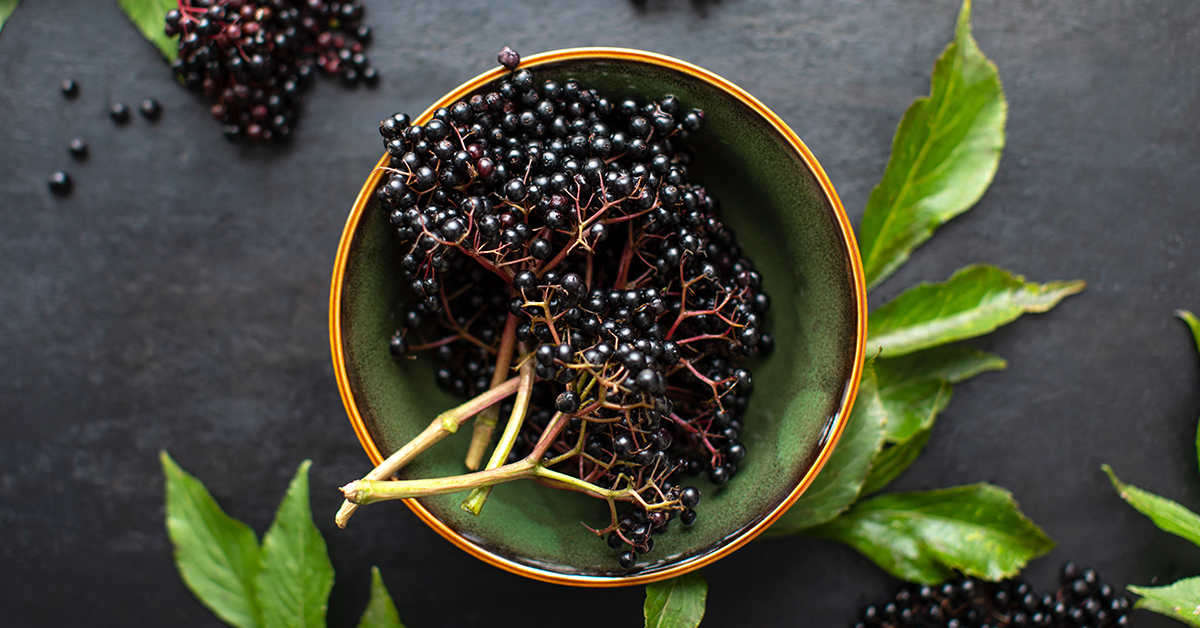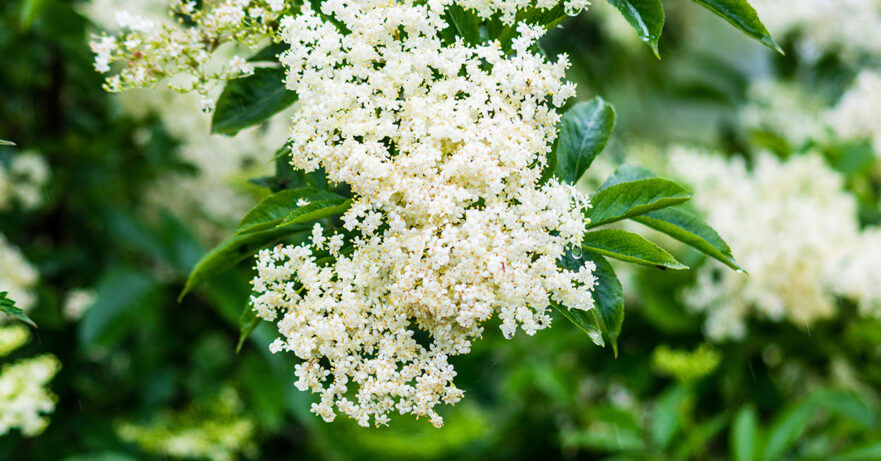In this monograph about elder:
📖 Introduction | 🌱 Botanical Description | 📜 Traditional Uses | 🔍 Phytochemistry | ✨ Applications and Uses | 🛡️ Safety Profile
📖 Introduction
Elder (Sambucus nigra) commonly known as elderberry, is celebrated in herbal medicine for its immune-enhancing and antiviral properties. Traditionally used across many cultures, elder is particularly valued for its ability to prevent and alleviate cold and flu symptoms, with both its berries and flowers being utilized for their medicinal benefits.
| English Name | Elder |
| Latin Name | Sambucus nigra |
| Parts Used | Flowers, berries |
| Traditional Uses | Immune support, treatment of colds and flu |
| Herbal Actions | Antiviral, antispasmodic, diaphoretic |
🌱 Botanical Description
Scientific Classification
Sambucus nigra is part of the Adoxaceae (Caprifoliaceae) family.
Physical Characteristics
Elder is a deciduous shrub with clusters of small white or cream-colored flowers, known as elderflowers, followed by dark purple to black berries.
Natural Habitat and Cultivation Details
Native to Europe, North America, and parts of Asia, elder thrives in both wet and dry fertile soils, predominantly in sunny locations.
📜 Traditional Uses
Elderberries and elderflowers have been traditionally used for their antiviral and immune-stimulating properties, making them popular in treating colds and flu. Elderflower is also known for its diaphoretic properties, helping to manage fever and induce sweating.

🔍 Phytochemistry (Active Constituents)
The medicinal benefits of elder are primarily attributed to its rich content of:
- Anthocyanins: Rich in elderberries known for their antioxidant properties, these compounds enhance immune function.
- Flavonoids: Present in both flowers and berries, these contribute to the plant’s antiviral capabilities and overall antioxidant activity.
- Vitamin C: Abundant in the berries, this vitamin supports the immune system and overall health.
- Triterpenoids: Found in elderflowers, these compounds are known for their anti-inflammatory and antiseptic properties.
✨ Applications and Uses
In herbal medicine, elder is primarily utilized for:
- Immune support: Elderberry extracts are widely used to boost immunity and speed recovery from viral infections.
- Respiratory health: Elderflower syrups and teas help relieve symptoms of colds and flu, such as coughs and congestion.
- Anti-inflammatory: Both elderberry and elderflower have anti-inflammatory effects that can alleviate pain and swelling.
🛡️ Safety Profile
Elder is generally considered safe when used in culinary and therapeutic amounts.
Raw berries, leaves, and other parts of the plant contain cyanogenic glycosides and should not be consumed without proper preparation.
Elderberry products must be cooked or otherwise processed to eliminate potential toxicity.
Pregnant and breastfeeding women should consult a healthcare provider before using elder products.
Individuals on diuretic or diabetic medications should use elderberry under medical supervision due to its diuretic and hypoglycemic effects.
A consultation with a healthcare professional before starting any new herbal treatment is advisable, especially for those with pre-existing conditions or those taking other medications.
